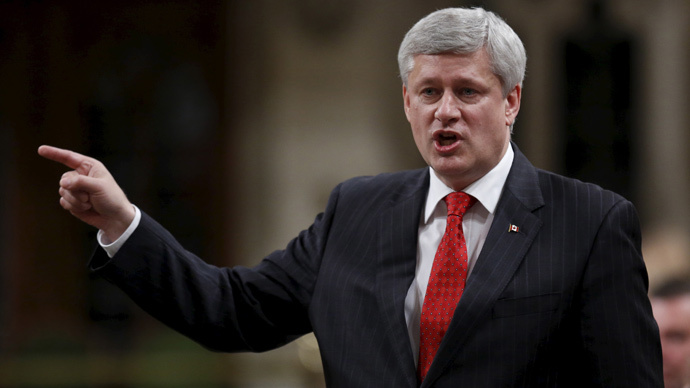Canada expands anti-Russian sanctions, calls for ‘real peace’ in Ukraine

The Canadian government has widened anti-Russian sanctions. Gazprom, its oil subsidiary Gazprom Neft along with Surgutneftegaz and Transneft are included in the list which Canada had previously added to in February.
Canada has imposed restrictions against another 14 companies and organizations and three Russian citizens, according to a statement on the Canadian government website Monday.
The sanctions list included the leaders of the Eurasian Youth Union Alexander Dugin, Pavel Kanischev and Andrei Kovalenko and the union itself.
READ MORE: Top MPs urge counter-sanctions against ‘most anti-Russian country’ Canada
Also the Government of Canada has added to the list the Tula arms plant, United Aircraft Corporation, the aerospace holding company Oboronprom and several other companies.
“Until there is real peace, until occupying forces are withdrawn, and until Ukraine’s territorial sovereignty is restored, there must be ongoing consequences for President Putin’s regime. Our Government is therefore announcing additional sanctions and travel bans against Russian individuals, and economic sanctions against Russian entities, as well as a Crimean import/export ban,”said the statement from Canadian Prime Minister Stephen Harper.
In 2014, Canada announced the introduction of new sanctions against Russia and expanded the blacklist ten times. Previously in 2015 Canada only expanded the list in February when the restrictions against Rosneft and 11 Russians were imposed.
Last week the EU prolonged, but not expanded, economic sanctions against Russia for another six months. This was announced two days after the EU’s decision to extend sanctions against Crimea for another year.
READ MORE: Medvedev signs food embargo extension until August 2016
As a countermeasure, Russian Prime Minister Dmitry Medvedev signed a decree to prolong Russia’s food embargo until August 5, 2016.
The list includes meat of cattle, pigs, edible offal, fish and shellfish, milk and dairy products, vegetables, sausages, etc., according to Medvedev.
Russian officials have repeatedly been saying that Moscow answers sanctions reciprocally. It wasn’t Russia that started the sanctions war. Moscow is ready to stop it, but sees no significant efforts from the West, said Medvedev after signing the document.












